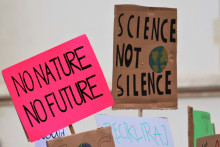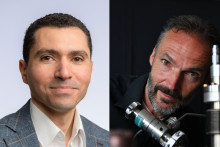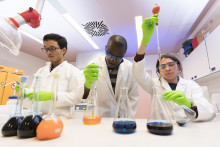The report was commissioned by the executive boards of NWO and KNAW, who have embraced the recommendations, according to a press release. This could mean a sea change for the way research is funded in the Netherlands.
Some €100 million a year is needed for science to contribute more effectively to the transition to a climate-neutral society by 2050, according to the report’s authors. They also argue that it would be unwise to have researchers compete for this funding.
Not too late yet
‘We can still prevent the worst irreversible consequences of climate change’, lead author Heleen de Coninck writes in the press release. De Coninck is professor of Innovation Studies at Eindhoven University of Technology, and she is also affiliated with Radboud University Nijmegen. ‘But this will only succeed if scientists and relevant social actors work together intensively on system transitions.’
These transitions will have an impact on agriculture, urban planning, transport and food supply. We need to eat less meat, stop using concrete and get rid of privately owned cars... But how do you achieve all that? By doing lots of research, according to the report.
The authors also call for a ‘Netherlands Climate Research Initiative’ (Klimaatonderzoek Initiatief Nederland, abbreviated to KIN), which would manage the proposed 100 million euro budget. Approximately half of the budget is to be earmarked for research on system change. Around 30 million will go to international research, for example in cooperation with developing countries.
The report stresses that researchers should not have to compete for this funding. While competition between scientists could potentially raise the quality of research, it could also slow things down, as all sorts of highly relevant projects would fall by the wayside.
Urgency
De Coninck: ‘To be relevant, the KIN needs to serve society and deliver results much faster. This will require different skills from researchers.’
This means that social impact will need to take precedence over publications in prestigious journals. ‘The urgency of climate change does not allow us the time to perfect the selection of research’, according to the report’s authors.






